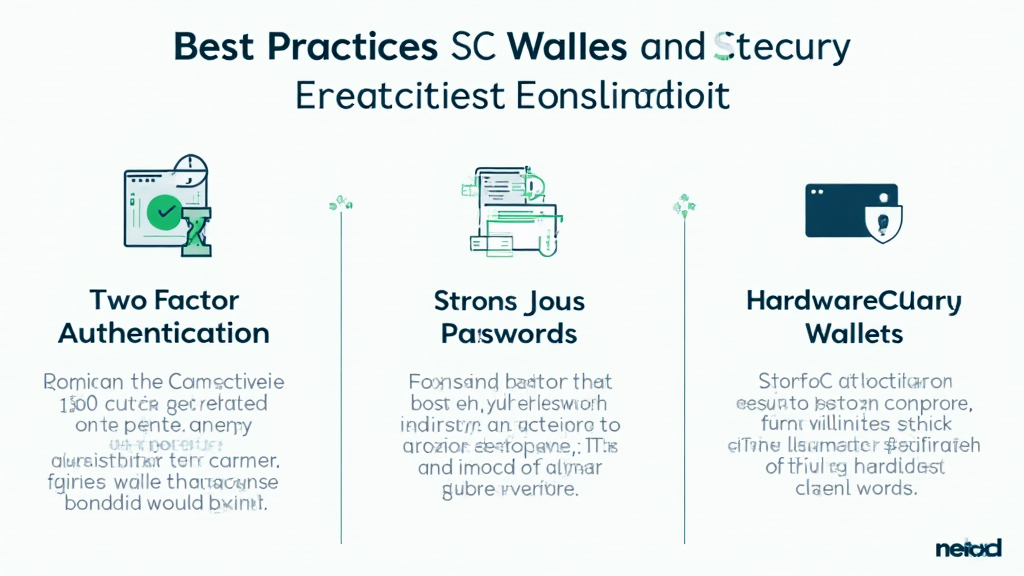Best Practices for Vietnam Crypto Wallet Security
Introduction
In the rapidly evolving world of cryptocurrencies, security remains a paramount concern. With an astounding $4.1 billion reported losses from DeFi hacks alone in 2024, it is crucial for crypto enthusiasts in Vietnam to understand the importance of enhancing wallet security. The growth of the cryptocurrency user base in Vietnam, which increased by 300% over the last year, further emphasizes the need for robust security measures for digital assets. This article will explore the best practices for securing your crypto wallet, tailored specifically to the Vietnamese market.
Understanding Wallet Types
Before diving into security practices, it’s vital to understand the different types of wallets available:
- Hot Wallets: These are wallets that are constantly connected to the internet, making them easier to use but more susceptible to hacking.
- Cold Wallets: Cold wallets are offline storage solutions, such as hardware wallets (like Ledger Nano X) or paper wallets. They drastically reduce the risk of online threats.
In Vietnam, many users are attracted to hot wallets due to their convenience, but beginners must be aware of their vulnerabilities. The overall principle is that the more convenient the wallet, the more security measures are necessary.

Blockchain Security Standards and Best Practices
A comprehensive approach to wallet security involves multiple actions. Below are the recommended security practices:
1. Enable Two-Factor Authentication (2FA)
Two-factor authentication is one of the simplest and most effective ways to protect your wallet. By requiring two forms of verification, such as a password and a text message confirmation, you can enhance your wallet’s security significantly.
2. Use Strong, Unique Passwords
A common yet critical security flaw is using weak passwords. Ensure your wallet’s password is a combination of letters, numbers, and special characters. Avoid reusing passwords across different platforms. A password manager can be a valuable tool to help manage and generate strong passwords.
3. Keep Software Up to Date
Just like any other software, keeping your wallet application updated is essential to protect against vulnerabilities that cybercriminals may exploit. Enable automatic updates if possible, or regularly check for updates manually.
4. Backup Your Wallet
A backup of your wallet can save you from losing access to your funds if your device is lost, stolen, or damaged. Ensure backup files are stored securely in multiple locations, such as encrypted USB drives or secure cloud storage options.
5. Be Wary of Phishing Scams
Cybercriminals often use phishing emails or fraudulent websites to trick users into revealing their wallet credentials. Always double-check URLs, avoid clicking on suspicious links, and never share your private keys with anyone.
Regulatory Landscape in Vietnam
Understanding the computer and blockchain regulations in Vietnam can greatly impact security practices. In 2025, regulations are expected to tighten, pushing for better security standards and compliance for crypto wallet providers. Staying updated with local regulations such as tiêu chuẩn an ninh blockchain can provide users with the necessary knowledge to protect their assets.
Utilizing Hardware Wallets
As mentioned earlier, cold wallets or hardware wallets, such as the Ledger Nano S, are considered one of the safest options for storing cryptocurrencies due to their offline nature. They reduce the risk of hacking by isolating your keys from the internet.
Conclusion
The importance of protecting your cryptocurrency assets cannot be overstated, especially in a rapidly growing market like Vietnam. By following the best practices outlined above and continually educating oneself about tiêu chuẩn an ninh blockchain, crypto users can significantly minimize risks. Invest in reliable security measures and stay connected to developments in the regulatory landscape to ensure your assets remain secure.
For more insightful articles on cryptocurrency and technology, visit techcryptodigest.





